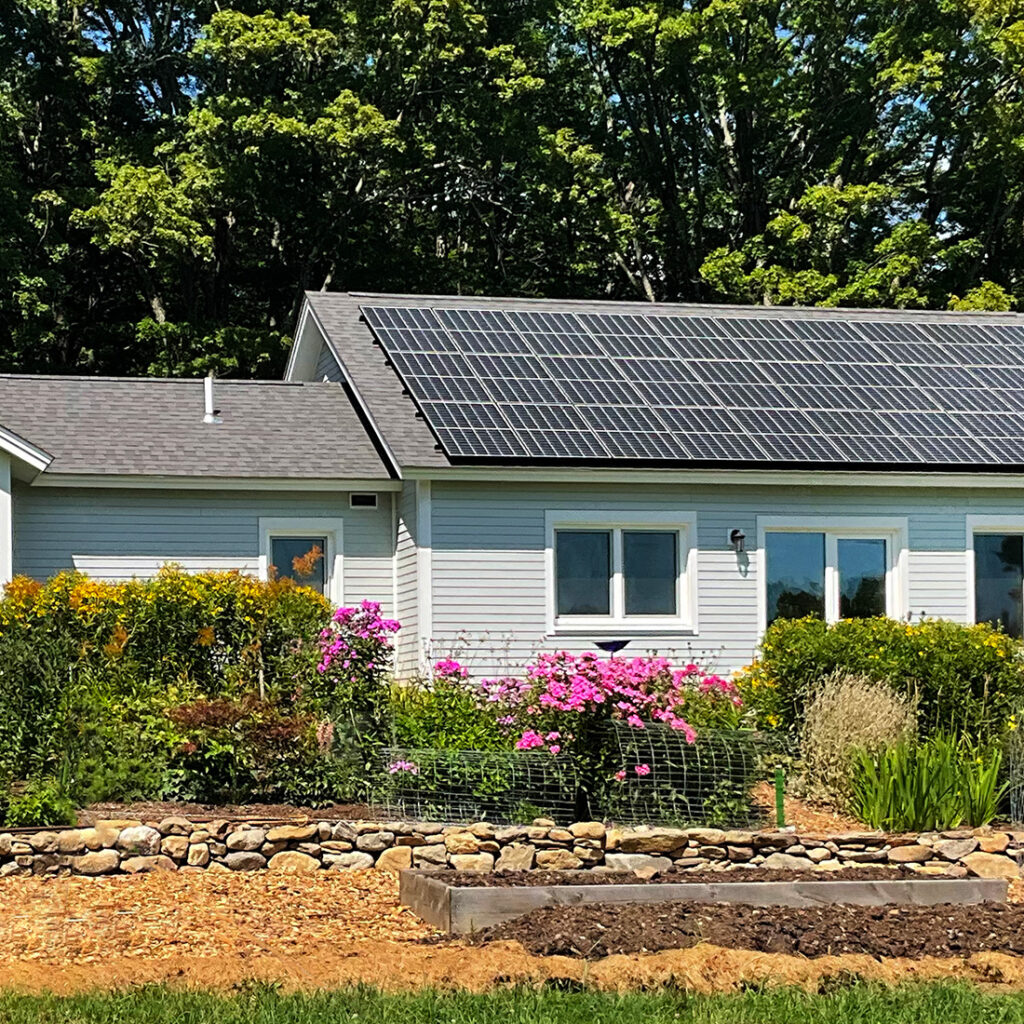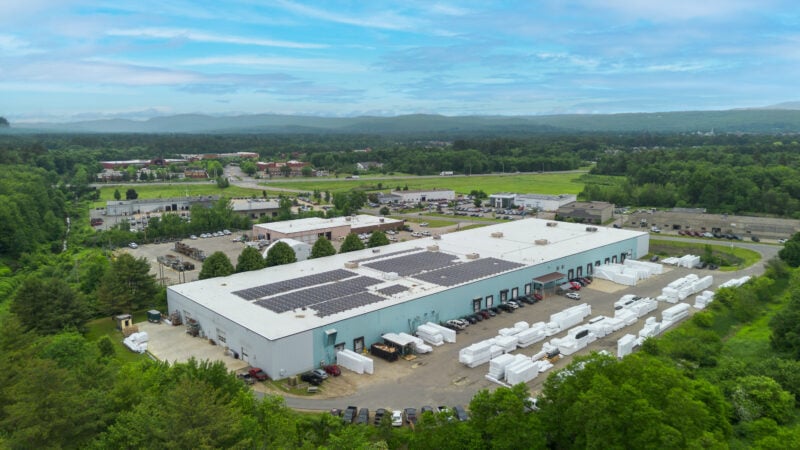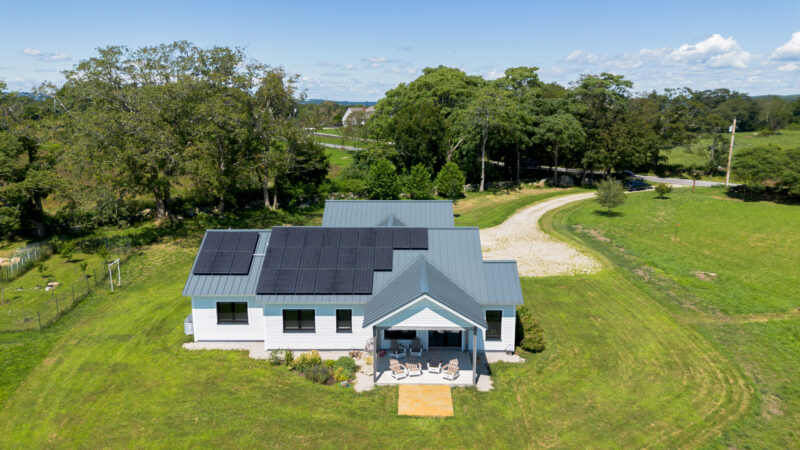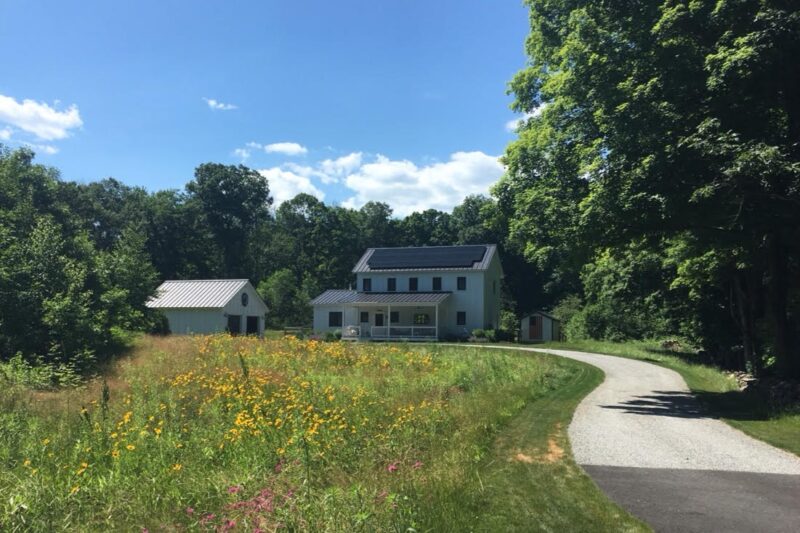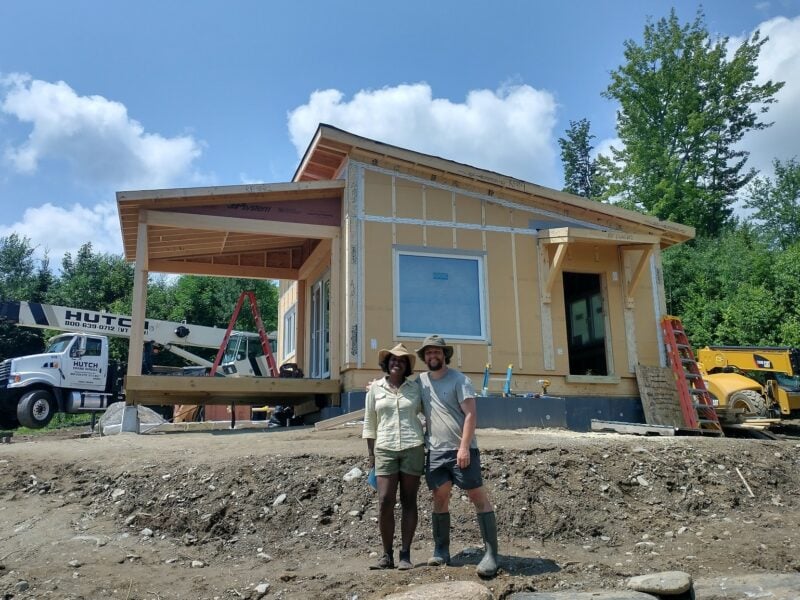With all the dire headlines and uncertainty relating to interest rates, inflation and energy costs, why would anyone start planning to build a new home now? As builders of high-performance homes, we at Unity have been pondering that question. We’ve come up with a few reasons why now is as good a time as any to plan for your new home.
The Long-Term Perspective
For most people, building a new home is a long-term investment. In fact, it’s the single largest purchase that most people will ever make. And the way that Unity builds, we expect our homes to be around for hundreds of years. This perspective can help to keep the headlines of the twenty-four-hour news cycle from feeling overwhelming. In several years, the headlines will be different. In fact, the focus of headlines changes from one day to the next. But the need for healthy, comfortable, energy-efficient housing is timeless.
While much of the information currently in the news tends to be negative, it could be interpreted as motivation for building sooner rather than later. It’s certainly incentive for building a home that’s high-performance and all-electric.
Negative News Spurring Positive Action
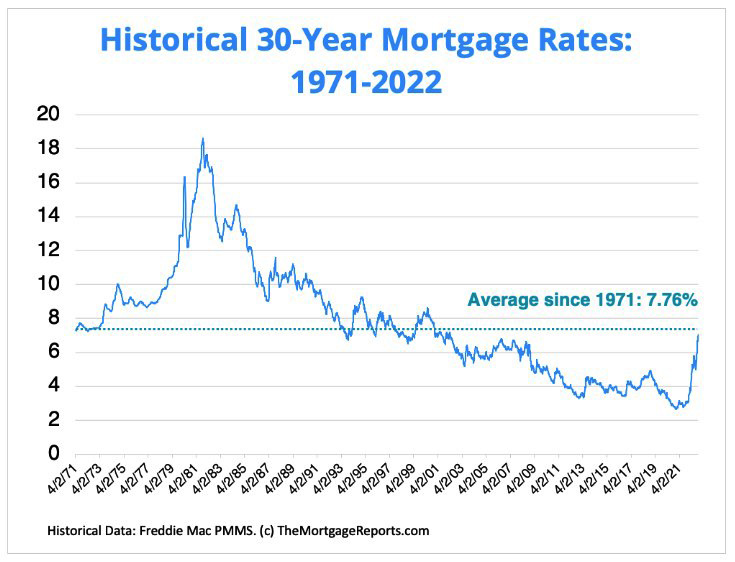
Much of the economic news during 2022 has centered on rising interest rates. Yes, interest rates have been climbing, but as the chart above indicates, the rate on a 30-year mortgage is still below the historical average from the past 50 years. Rates just feel high because we’ve become so accustomed to the “cheap money” of the past decade. Rising interest rates aren’t necessarily a bad thing, because they suggest that construction activity – and home price appreciation – may be returning to more sustainable levels.
Unusually high inflation has also been in the news, driven largely by increases in energy prices. Inflation has affected costs for material and labor, although we’re starting to see moderation in both. Skyrocketing costs for oil and gas have been a wake-up call – for anyone who needed one – to the risks of basing our economic system on fossil fuels. What better way to respond, for those who are able, than by building a fossil-fuel-free, Net Zero home? In addition to eliminating ongoing dependence on oil and gas, these homes provide tremendous resiliency in the face of unpredictable energy markets. Autocrats and OPEC don’t dictate the movements of the sun.
Home as a Resilient Refuge
High-performance homes offer peace of mind in a world that increasingly feels upside down. Utility costs for Unity Homes are predictably low, and not dependent on the volatile gas and oil markets. With the addition of photovoltaic panels, energy costs can be negligible. And home battery systems offer the reassurance of continued power when the grid goes down. Unity Homes also offer resilience in the face of disruptions that once were rare, and now are becoming commonplace.
During times of economic uncertainty, we’re increasingly looking for our homes to be places of calm and refuge. One of the most common reactions to being in a Unity Home is “it’s so quiet!” The same features that make the house extremely energy efficient – a thick blanket of insulation, airtight construction and triple-glazed windows – also block outside noise from entering the home.
Building with the Future in Mind
For many Unity clients, concerns about global warming overshadow the daily headlines of interest rates and energy prices. These clients would like their lifestyle to reflect their values. They’re drawn to homes that use minimal energy, because they understand the connection between what we build today, and the future that our grandchildren will inherit. Living in a high-performance, Net Zero home has minimal environmental impact from Day 1. Homes that are built to meet just the minimum codes and to be heated by oil or gas will have a damaging impact on the environment for many decades.
Some people looking to build a new home may feel that they don’t have a choice. The reasons are many and varied. Perhaps they’re relocating for work, and can’t find an existing home that fits their needs. Maybe they’re moving to be closer to family members, and the timing isn’t negotiable. Increasingly we’re seeing people on the move and looking to build new to escape extreme weather events that have become – or soon will be – intolerable. A resilient home in New England is looking good to families living with unhealthy air quality due to wildfires in Oregon, or those picking up the pieces of their home after the latest hurricane in Florida.
Investing in Long-Term Value
While it’s true that building a high-performance home requires a greater up-front investment than building a conventional home using on-site methods, in the long run, the high-performance home is the better investment.
YouTube blogger and Unity client Matt Ferrell summarizes this perspective nicely when he writes this about building a high-performance home:
It’s not that different from getting solar panels for your home. In that case you’re basically prepaying for your electricity for the next 20-30 years. While it’s a little pricey up front, you’ve locked in your costs and will benefit from that over time. A [high-performance home] is the same thing. I’ll be paying more up front, but will benefit from the energy savings of the house over time.
My wife and I are building our dream home and are settling in for the long term, which is why we’re willing to go a little above and beyond on the upfront costs for the long-term benefits. This house should be low maintenance, low operational costs, and be more comfortable and healthy than any house we’ve lived in before.
If you have questions about whether the time is right for you to start planning a new high-performance Unity home, please reach out to our Sales Advisors to learn more.
